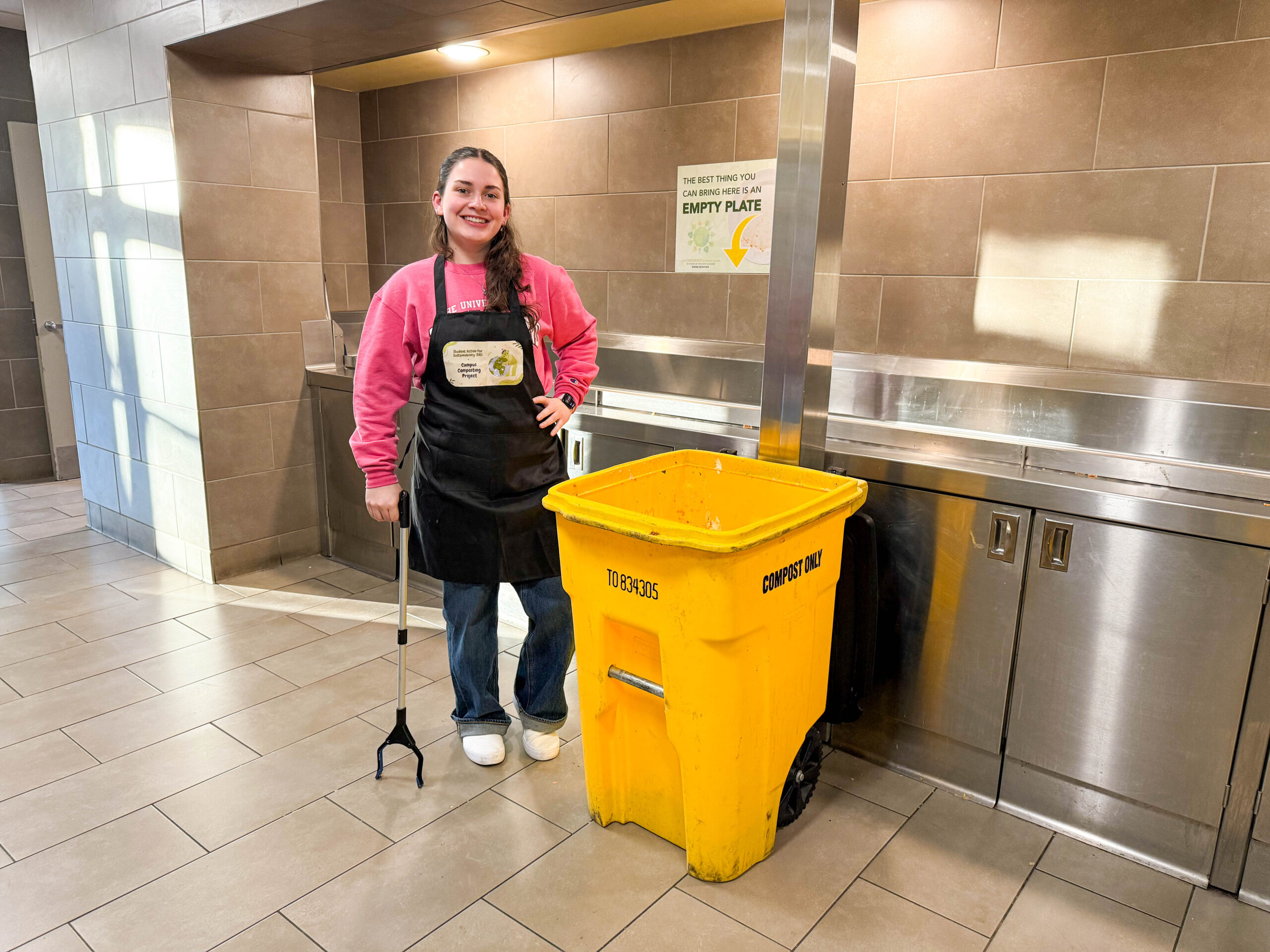University of Rhode Island’s Student Action for Sustainability collected over 30,000 lbs. of compost since launching its dining hall food recovery system last spring, according SAS President Dylan Murdock.
This initiative is URI’s first attempt at post-consumer composting, according to Pierre St-Germain, the director of dining services. In URI dining halls, this is the food that students throw away instead of eating.
Prior to this system, the university only participated in pre-consumer composting, according to St-Germain. In URI dining halls, pre-consumer composting happens before the food is served. This would include food scraps from the kitchens that are not served to students.
With SAS’s addition, URI’s dining halls are able to divert more waste from students and find out what does and doesn’t work in dining services, according to St-Germain.
“It also allows us to do a comparative of what we’re producing and what students are composting to see if there’s correlation between the foods, like if they’re enjoying something is there less compost, if they’re not enjoying something is there more compost,” St-Germain said.
The university has not previously touched upon post-consumer composting because of a lack of student stewardship to make it successful, according to St-Germain.
“It’s fine if you have an adult, they’re telling the students what they can and can’t do, so to speak, or what they should and shouldn’t compost, but it’s not going to resonate as much as another student telling them,” St-Germain said.
To help build a culture of sustainability at URI, SAS is working with Amanda Missimer, a clinical assistant professor and registered dietician, through URI’s food systems fellowship program, according to Murdock. They are collaborating to create an orientation program for first-year students where they can learn about food recovery as soon as they step onto campus.
“They will just see it as an expectation or an understood action that’s taken on campus as opposed to something that they’re being, not forced to do, but maybe volun-told to do,” St-Germain said. “So, we’re trying to make it just part of our culture.”
Moving forward, SAS hopes to expand this food recovery project from dining halls to all dorms across campus, according to Murdock. This, however, will be more difficult to accomplish according to St-Germain.
“I think we would be better served to try and focus on capturing as much as possible from the core locations on campus where food production occurs,” St-Germain said.
Murdock said he helped create this project because he felt the university didn’t represent him, because of what he perceived as a lack of sustainable actions. Four years later, a community exists that can change the attitude of URI students in regard to sustainability for the long term.
“Even if it doesn’t benefit me or the people who are currently in this club, we think about the next people who step on this campus, even if we don’t know who they are, or what their faces look like,” Murdock said.
With graduation coming for many of the members, the club is working on efforts to pass the baton to the club’s younger members, according to Murdock.
“I’ve sacrificed a lot for this, but it needs to be passed onto the next person, so we’re working on getting everything ready to be able to pass the torch to the next group of students because that’s sustainability for me,” Murdock said. “It’s being able to compound these long-term systems on one another so that we can benefit students’ lives in a positive way long term.”
Visit @uri_sas on Instagram for more about university sustainability initiatives.





